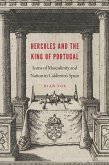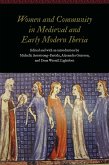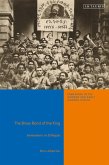Hercules and the King of Portugal investigates how representations of masculinity figure in the fashioning of Spanish national identity, scrutinizing ways that gender performances of two early modern male icons¿Hercules and King Sebastian¿are structured to express enduring nationhood. The classical hero Hercules features prominently in Hispanic foundational fictions and became intimately associated with the Hapsburg monarchy in the early sixteenth century. King Sebastian of Portugal (1554¿78), both during his lifetime and after his violent death, has been inserted into his own land¿s charter myth, even as competing interests have adapted his narratives to promote Spanish power. The hybrid oral and written genre of poetic Spanish theater, as purveyor and shaper of myth, was well situated to stage and resolve dilemmas relating both to lineage determined by birth and performance of masculinity, in ways that would ideally uphold hierarchy. Dian Fox¿s ideological analysis exposes how the two icons are subject to political manipulations in seventeenth-century Spanish theater and other media. Fox finds that officially sanctioned and sometimes popularly produced narratives are undercut by dynamic social and gendered processes: ¿Hercules¿ and ¿Sebastian¿ slip outside normative discourses and spaces to enact nonnormative behaviors and unreproductive masculinities.
Dieser Download kann aus rechtlichen Gründen nur mit Rechnungsadresse in A, B, BG, CY, CZ, D, DK, EW, E, FIN, F, GR, HR, H, IRL, I, LT, L, LR, M, NL, PL, P, R, S, SLO, SK ausgeliefert werden.









